Choosing a prosthetic provider for your child is one of the most important decisions you will ever make. It’s not just about getting a device—it’s about finding a team that understands your child’s needs, listens to your concerns, and helps your family every step of the way. The right provider can make your child’s journey smoother, easier, and even joyful. But how do you know which one is right for you?
At Robobionics, we work closely with parents across India who want the best for their children. Through years of experience, we’ve learned what really matters when choosing a prosthetic partner. This article will guide you through what to look for, what questions to ask, and how to make sure your child gets care that is not only professional, but also personal and empowering.
Understanding Your Child’s Unique Needs
Every child is different. Some are full of energy and want to run and climb. Others love to draw, write, or play instruments. Some children are quiet and need time to adjust. Others jump right into trying new things. When it comes to prosthetic care, a one-size-fits-all approach never works.
Looking Beyond the Limb Difference
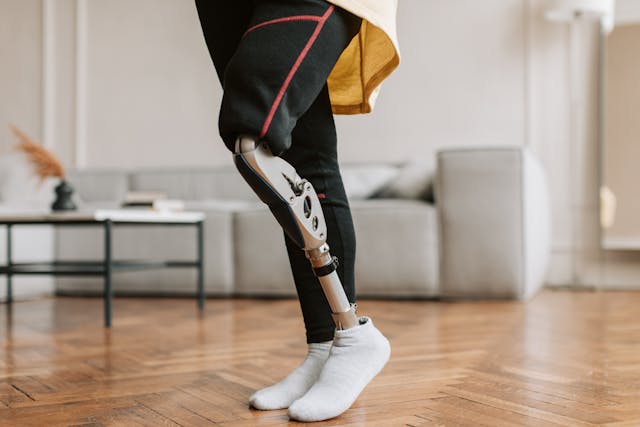
It’s easy to focus only on the missing limb or physical difference, but your child is much more than that. Their personality, interests, comfort level, and emotional readiness matter just as much as the device they’ll wear. A good prosthetic provider will take time to learn about your child—not just measure their limb.
Ask yourself how your child reacts to change. Are they excited or nervous? Do they ask questions or need reassurance? The answers to these help you understand what kind of provider your child will respond to. The right team will support not only your child’s physical needs but also their feelings and confidence.
At Robobionics, we always start by listening. We ask about your child’s day, their school life, their favorite activities—because that’s where the prosthetic will live and move with them every day.
Planning for Growth and Change
Children grow fast. What fits today might not fit six months from now. A good prosthetic provider understands that children’s needs change quickly, and they plan ahead. They also know that emotional readiness comes in stages. Your child might need a cosmetic limb first, then later a functional one, or even a myoelectric device when they are ready.
The provider you choose should offer flexible care. They should expect your child to grow and adapt, and they should be ready to adjust the prosthetic as needed. This ongoing support is often more important than the first fitting.
Robobionics provides a structured care journey with growth milestones, regular check-ins, and personalized adjustments so your child is always comfortable and confident as they grow.
Considering Lifestyle and Environment
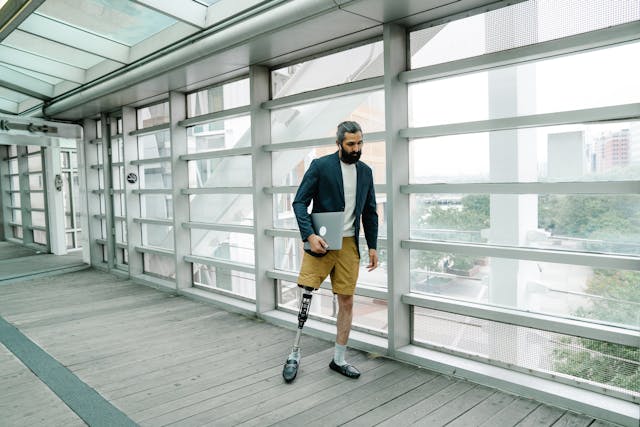
Where your child lives, goes to school, and plays also matters. Some families live in cities, while others are in smaller towns or villages. Some children are highly active, while others need simpler solutions. A provider should be able to adapt to your lifestyle—not expect you to fit into theirs.
Think about how far you can travel for appointments. Ask whether the provider offers virtual support or has a local partner clinic. These practical points can make a big difference in how easy and consistent your child’s care will be.
At Robobionics, we work across India through a network of partner clinics like Omnify Prosthetics. We also offer remote support, follow-up care, and home-based training options so that no matter where you are, help is always close.
Evaluating the Provider’s Experience and Approach
Once you understand your child’s needs, the next step is learning more about the provider. Not all prosthetic centers are the same. Some focus on adults, others on injury-related cases, and only a few truly specialize in pediatric prosthetics. You want a team that has experience with children—and that knows how to make the process child-friendly.
Looking at Pediatric Expertise
Fitting a child is not like fitting an adult. Children have softer skin, growing bones, and shorter attention spans. They also have different emotional needs. A provider with pediatric experience knows how to work at your child’s pace. They know how to create a calm, safe environment and how to make the experience feel more like play than a medical procedure.
Ask whether the provider has worked with children of your child’s age and condition. Look for signs that they take the time to explain things gently and that they make space for parents to be involved. A good pediatric provider knows that the family matters just as much as the patient.
Robobionics has worked with hundreds of children across different stages of development. From infants to teens, our team is trained to meet young users where they are and support their journey at every step.
Focusing on Function and Comfort Together
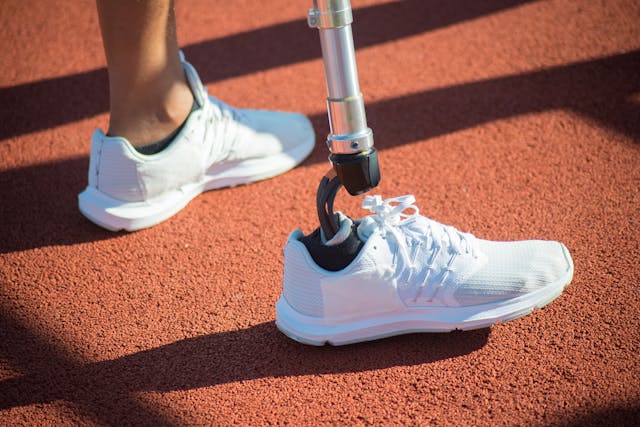
A prosthetic should be useful—but it should also be comfortable. Some providers may focus only on the technical aspects: the parts, the mechanics, the grip strength. But if a prosthetic doesn’t fit well or feels heavy, your child may not want to wear it. The best providers balance function with comfort, and they always listen to how the child feels.
During the fitting process, providers should ask your child for feedback. Does it pinch? Is it too tight? Do they feel like using it? These simple questions can prevent big problems down the road.
At Robobionics, we involve children in every fitting session. We adjust the fit based on their input and make changes until the prosthetic feels like part of them—not a burden.
Ensuring a Clear Follow-Up Plan
Getting a prosthetic is not a one-time visit. Children need regular follow-up care, especially as they grow or become more active. Before choosing a provider, ask what kind of long-term support they offer. How often do they schedule reviews? Can you call them if there’s a problem? Will they remind you when an upgrade is due?
A provider that plans ahead gives you peace of mind. You shouldn’t have to chase them for help—they should stay in touch with you.
Robobionics offers scheduled follow-ups, growth-based check-ins, and an open communication line so families always know when to come back—and never feel alone in the process.
Matching Technology to Your Child’s Future Goals
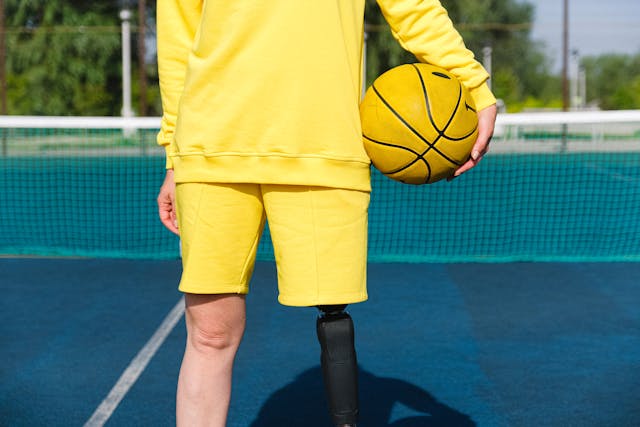
Choosing a prosthetic isn’t just about what your child needs today—it’s about what they’ll need tomorrow, next year, and as they grow into new roles and activities. A good prosthetic provider should offer more than one solution. They should provide a clear path that evolves with your child’s goals and growth, whether it’s sports, art, writing, or everyday independence.
Offering the Right Range of Prosthetic Types
Your child’s needs will change over time. Early on, they may need a simple passive prosthetic to help with balance or symmetry. Later, they might benefit from a body-powered arm, and as they grow, a myoelectric prosthetic may open up more possibilities. A strong provider will offer all of these options—and know when each one is appropriate.
Ask if the clinic offers cosmetic, functional, and advanced myoelectric solutions. More importantly, ask how they decide which type to recommend. A thoughtful provider won’t push the most expensive device—they’ll guide you toward the one that suits your child’s current abilities and interests.
At Robobionics, we start with what the child needs today and help families plan for future transitions. Whether it’s Grippy™, our 3D-printed myoelectric hand, or a lightweight activity-based limb, we customize based on real-life goals—not just diagnosis.
Providing Flexible and Upgradable Solutions
As your child grows, their prosthetic must keep up. That means the provider should offer upgradable parts, adjustable sockets, and customizations that fit your child’s evolving lifestyle. If a prosthetic becomes outdated or uncomfortable, children often stop using it. But when updates are built into the plan, children are more likely to keep wearing their prosthetic and benefiting from it.
Ask if the provider’s prosthetics can be upgraded without starting from scratch. Can the socket be resized? Can the hand or foot be swapped out for a different model later? Are there activity-specific add-ons for sports or school?
At Robobionics, our modular designs allow easy upgrades as your child grows or gains new skills. We believe prosthetics should grow with your child—not hold them back.
Focusing on Real-World Functionality
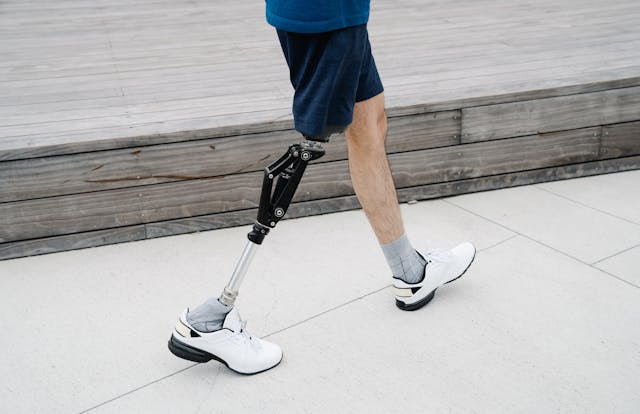
A good prosthetic is not just impressive in the clinic—it works in your child’s real world. Whether they’re drawing, typing, running, or playing with friends, the prosthetic should support their daily life. This means the provider must understand how your child spends their time, what goals they have, and what challenges they face.
The best providers test prosthetics in real-life scenarios. They observe how your child interacts with toys, utensils, books, and tools. They then make adjustments to improve ease of use, durability, and comfort.
At Robobionics, we take the time to learn how each child moves through their day. Then we design solutions that help them do more—naturally, confidently, and with joy.
Evaluating Emotional and Social Support from the Provider
The prosthetic itself is only part of the journey. For your child to truly thrive, they need to feel emotionally safe and socially supported. This means that the provider you choose should not only care about fitting a device but also about building your child’s confidence, helping them navigate social spaces, and supporting your entire family. Emotional care is not extra—it’s essential.
Creating a Child-Friendly and Encouraging Environment
Children are sensitive to how they’re treated. The way a provider speaks to your child, the atmosphere in the clinic, and the tone of each appointment all affect how your child feels about the process. If your child feels nervous, judged, or rushed, they may develop a negative association with their prosthetic—even if it fits well. On the other hand, a warm, playful, and encouraging environment can help your child feel safe and excited to learn.
Look for providers who talk directly to your child and explain things in a way they can understand. Notice if the space is clean, calm, and welcoming. Do they celebrate progress? Are they patient when things take time? These small details matter more than you might think.
At Robobionics, every child is treated with patience, kindness, and respect. We make each session comfortable and fun so children are more likely to engage with their prosthetic positively from the very beginning.
Involving Parents and Caregivers at Every Step
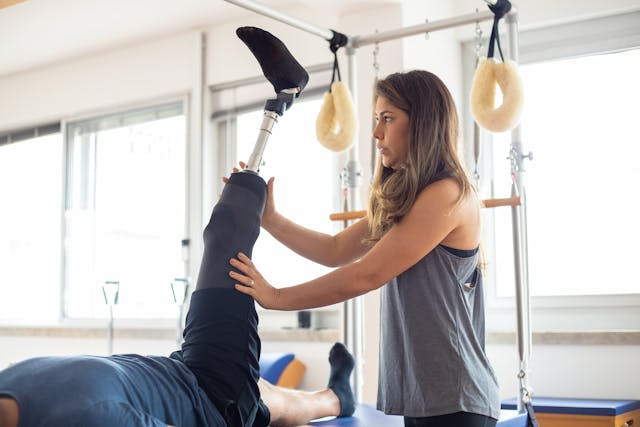
A provider should never leave parents out of the process. You are the constant in your child’s life—the one who will help them put on the prosthetic each day, notice changes, and guide them through difficult moments. That’s why you need to be informed, involved, and supported too.
Ask if the provider gives you guidance on home care, hygiene, and usage tips. Do they offer training for you as a parent? Can you reach out with questions in between visits? Do they ask how you are doing as part of the care plan?
At Robobionics, we consider parents our partners. We provide home-based rehabilitation tools, daily care checklists, and clear communication throughout the process so you’re always confident in what to do next.
Working With Schools and Support Networks
Your child’s experience doesn’t end at home or the clinic. They will take their prosthetic to school, to playgrounds, to dance classes, and family functions. That means the provider should help your child navigate these environments—not just leave you to figure it out.
Ask if the provider offers educational support for teachers or classmates. Do they have resources for talking about prosthetics in social settings? Can they help prepare your child to answer questions or explain their limb difference with confidence?
At Robobionics, we provide school support letters, classroom activity suggestions, and even demo sessions for teachers and peers. We believe that when a child feels understood and included, they are more likely to use their prosthetic proudly and consistently.
Conclusion
Choosing the right prosthetic provider for your child is not just about selecting a clinic. It’s about finding a trusted partner—someone who understands that your child is more than a medical case. The right provider will support your child’s physical growth, emotional development, and personal goals with care that is flexible, thoughtful, and deeply human.
A great prosthetic provider doesn’t just fit a device. They listen. They explain. They adapt. They work with your child’s world—from school to home to playtime—and they grow with you as your child’s needs evolve. Most importantly, they see your child for who they are: strong, smart, full of potential, and capable of thriving with the right support.
At Robobionics, we’ve made it our mission to be that kind of provider. We blend advanced technology with personal attention, and we walk alongside every family through every step of the journey. Whether your child is just starting out or ready to upgrade to their next prosthetic, we’re here to make sure their experience is empowering, exciting, and made just for them.
If you’re ready to find the right prosthetic partner for your child, we’re here to help.



